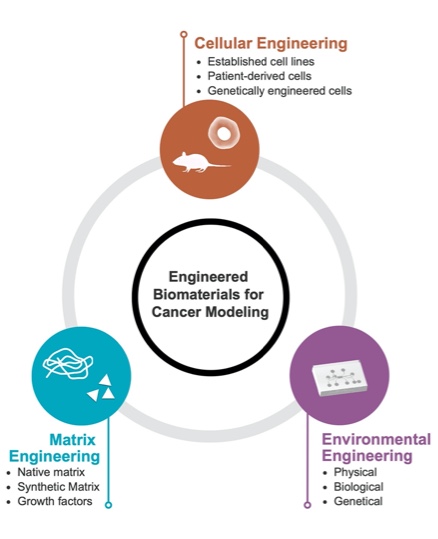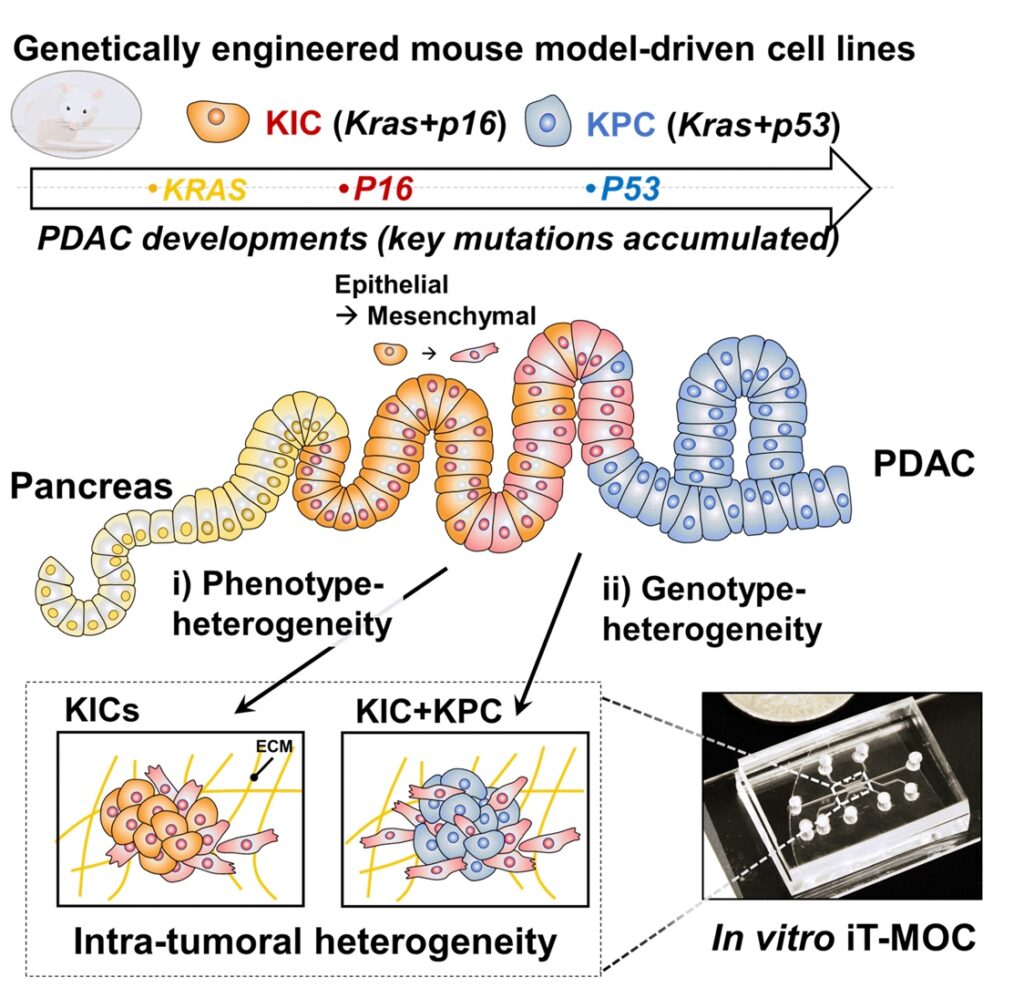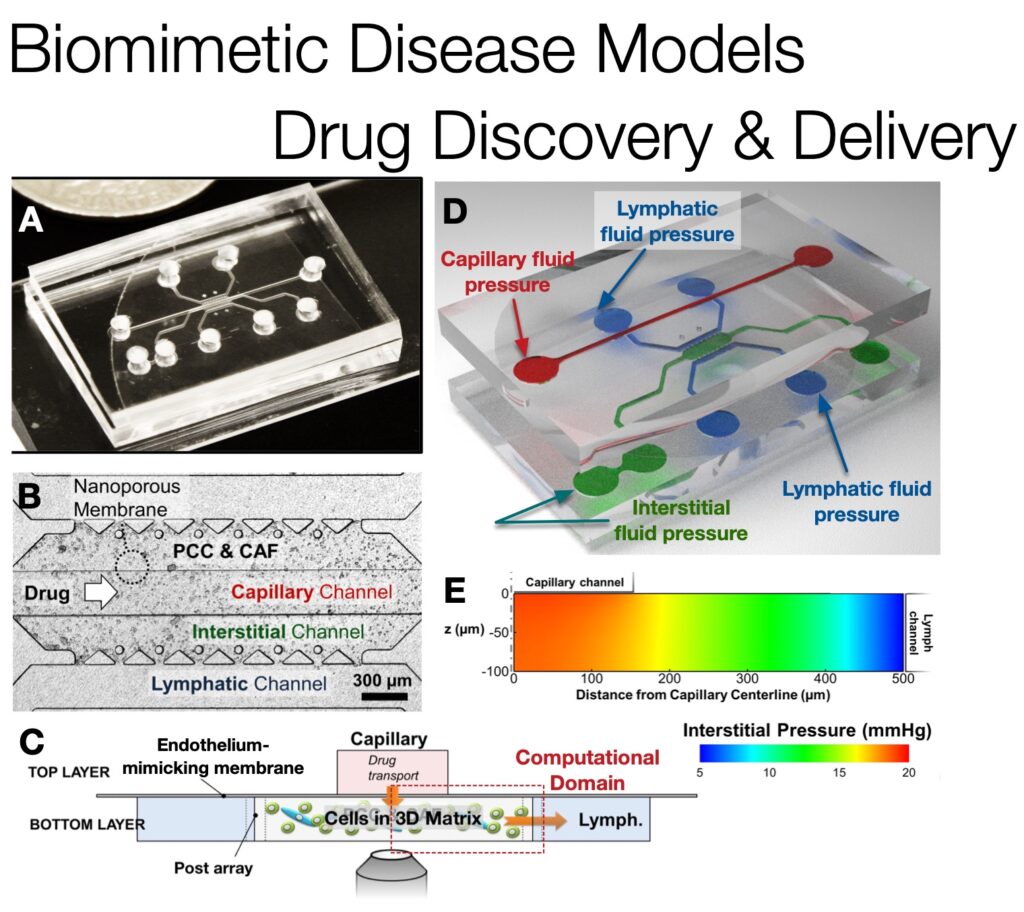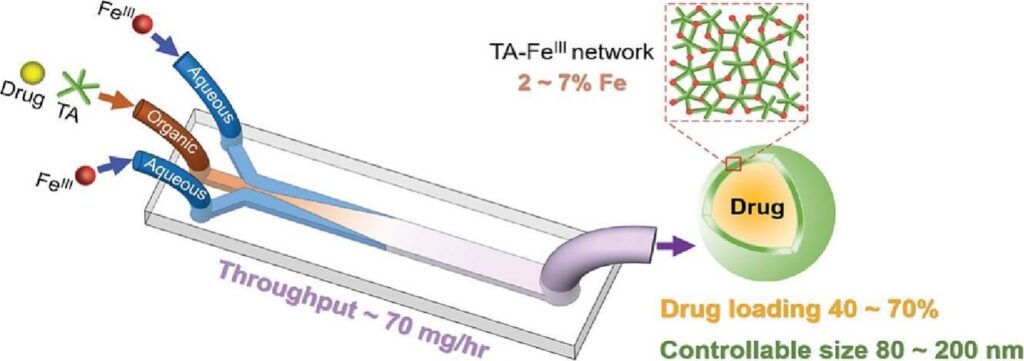Our mission is to foster healthier societies by creating innovative transport processes of cells and molecules.
We conduct interdisciplinary research on cellular and molecular transport processes in the pancreas and brain to elucidate pathobiology and biophysics, create new engineered disease model platforms, and discover effective therapeutic strategies. We also develop and utilize innvoative microscopy, microfluidics and 3D printing technologies. Currently, we are investigating the transport processes at the tumor microenvironment of pancreatic cancer and at the blood-brain interface.
Our core values are the discovery of new knowledges, the delivery of impactful health solutions, and the collaboration in an interdisciplinary and inclusive team science environment.
Specifically, we are focusing on biophysical and biochemical interactions between pancreatic cancer cells and surrounding stromal cells to reprogram the tumor stroma microenvironment. Pancreatic cancer, mostly in the form of pancreatic ductal adenocarcinoma, so called PDAC, is most deadly cancer type, whose 5-year survival rate is only 13% in 2024. These poor clinical outcomes attributes to the strong desmoplastic tumor microenvironment. It poses multiple barriers against effect drug transport, stimulate multi-faceted drug resistance mechanisms, and promote immunosuppression. We are searching strategies to reprogram the PDAC stromal microenvironment and mitigate its pro-tumorigenic characteristics by building microphysiological system of the PDAC tumor environment.
In addition, we are also engineering blood-brain microphysiological systems to study circadian rhythm and inflammation of brain microvasculature. Brain is a highly dynamic organ whose function has periodically active phase and rest phase. This cyclic change is related to sleeping, awareness and cognitive functions. We are currently investigating the role of the circadian rhythm disruption on the BBB permeability and subsequent neuroinflammation, which ultimately cause neurodegenerative diseases such as Alzheimer’s diseases and dementia. We are pursuing potential therapeutic interventions to prevent these type of diseases.




